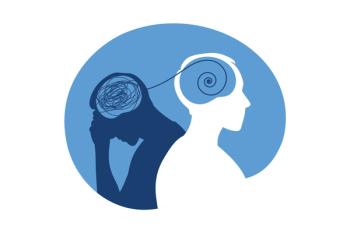
Role of Patient Education for Bipolar 1 Disorder Treatment
Bethanie Simmons-Becil, DNP, MSN, APRN, PMHNP-BC, APHN-BC, highlights the importance of patient communication and education when treating bipolar 1 disorder.
Bethanie Simmons-Becil, DNP, MSN, APRN, PMHNP-BC, APHN-BC: In any mental health diagnosis or any mental health treatment, patient communication and education is incredibly important. Oftentimes, these patients have been to their primary care providers on at least 2 or 3 occasions before they make it to those of us that specialize in psychiatry. We really need to make sure we understand the implications and the ramifications of their disease. A lot of patients are not happy with the diagnosis of bipolar disorder. There's a lot of social stigma involved with bipolar disorder mostly because of social media. We only get to see those folks that have the worst of the worst. It is always a struggle when you tell a patient, especially for the first time, that, “I think that you might have bipolar disorder.” Sometimes, it's important to educate them that bipolar disorder is a functional disease. You don't have to go on disability, you don't have to be out of work. You don't have to give up your life. These are conditions that can be managed and managed well with medication and have little impact over time, especially if you maintain treatment and regular therapy, which is always incredibly helpful. I really encourage my students and my peers to really provide the patient with a true understanding of what bipolar disorder is, which is that it's simply just a modulation, a shifting of moods.
My job in the situation is to one, help them identify when they're having prodromal symptoms when things are starting to crop up and catch them before they come back, become worse, or also help them understand that this is a diagnosis that's wholly their own. They don't have to share this information with anybody else. They don't have to be embarrassed by their situation, and it's helpful for them to have more education and to take it upon themselves, to educate themselves about their disorder. I really enjoy giving handouts and websites for NIMH, the National Institute of Mental Health, or NAMI the National Alliance for Mental Illness. I make sure that they have access to handouts here in my office to kind of educate them on the presenting symptoms and how to kind of catch things before they come about. Also, try to make sure, especially for those that don't have a good support system in their community, to give them references to community support groups, not just NAMI, but also, open group therapy and things that might be more beneficial, especially if they're starting to struggle with social isolation or feeling lonely because of their diagnosis. A lot of it for me is when I'm speaking with someone who has bipolar disorder and may not fully understand their diagnosis, I really try to meet them where they are and give them as much material and education as they're willing to receive just so they know that they can continue to live a normal, functional life.
Transcript Edited for Clarity
Newsletter
Receive trusted psychiatric news, expert analysis, and clinical insights — subscribe today to support your practice and your patients.







